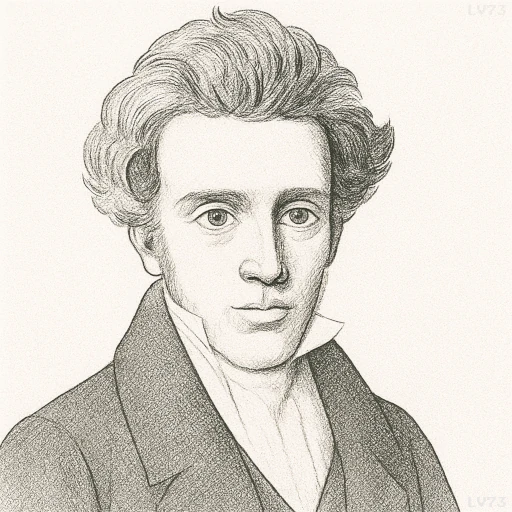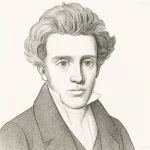“It belongs to the imperfection of everything human that man can only attain his desire by passing through its opposite.”

- May 5, 1813 – November 11, 1855
- Danish
- Philosopher, Theologian, Poet, Father of Existentialism
table of contents
Quote
“It belongs to the imperfection of everything human that man can only attain his desire by passing through its opposite.”
Explanation
This quote articulates Kierkegaard’s view that human fulfillment is inherently paradoxical—that one often must endure suffering, struggle, or contradiction to reach what one truly desires. Whether it is joy through sorrow, faith through doubt, or love through loneliness, the path to what we long for is rarely direct. This reflects the imperfection and complexity of human existence, where growth and realization require us to confront and pass through what seems to oppose us.
Kierkegaard consistently explored how life’s most meaningful achievements—selfhood, spiritual depth, and truth—are forged in tension and adversity. He challenged simplistic ideas of progress or happiness, arguing instead that trial and contradiction are necessary conditions for transformation. For example, to understand peace, one must experience unrest; to reach true belief, one must wrestle with uncertainty. In this sense, human imperfection is not a defect to be erased but a condition through which real depth emerges.
This idea resonates in many aspects of modern life. A person may need to face failure to appreciate success, or grieve deeply to rediscover meaning and love. Kierkegaard reminds us that opposition is not the enemy of fulfillment—it is often its gateway. The struggles we resist may be the very forces that prepare us to receive what we most truly desire, making the journey painful but also profound.
Would you like to share your impressions or related stories about this quote in the comments section?
